Much time may be spent on readings that don’t inspire, but there’s no denying the impression left by a book that is impossible to forget. University Affairs recently asked a handful of Canadian academics to reflect on “the book that changed my life.” For some, a book’s influence was partly situational – where they were at the time – and not just about the actual content. A few chose to write about books related to their disciplines, while others picked cherished childhood favourites. Each had a lasting impact on the reader’s point of view.
A Journey to the Centre of the Earth, by Jules Verne
Todd Pettigrew, associate professor of English, Cape Breton University
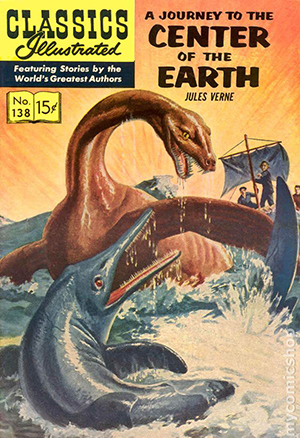 When I was 11, I went, every Saturday morning, to my youth bowling league. I wore a little bowling shirt, adorned with badges reflecting my achievements on the lanes, such as they were, and every Christmas, the league presented bowlers with gifts. One year, the gifts were books.
When I was 11, I went, every Saturday morning, to my youth bowling league. I wore a little bowling shirt, adorned with badges reflecting my achievements on the lanes, such as they were, and every Christmas, the league presented bowlers with gifts. One year, the gifts were books.
I unwrapped mine to discover Around the World in Eighty Days. It had a large yellow hot-air balloon on the cover and looked dull. But the girl beside me had a book with a monster on the front, and I asked her if she would trade with me. She, interested in neither, agreed. The monster book turned out to be A Journey to the Centre of the Earth and I dug in over the Christmas holidays.
I remember being riveted by an early passage where Uncle Lidenbrock argues with Axel, defending the notion that the Earth’s core might be cool and suggesting that the planet’s volcanic activity is merely a surface phenomenon. I sensed that the science was out of date, but I was thrilled by the revelation that books could be exciting for their ideas as much as, or indeed more than, their stories.
A few years later I awoke in the middle of the night suffering from one of the many stomach bugs that plagued my youth. Restless and looking for a distraction, I grabbed my old copy of Journey hoping I might get myself back to sleep. I re-read the whole thing that night start to finish, and by morning I felt better. I have never been more grateful for a book.
I now own two handsome special editions of Journey, both earning space on my very limited book shelves. But I don’t know what happened to that old abridgement. I probably left it behind when I first moved away. At that moment it might have seemed childish to me as I left for university and, I supposed, better things. There are only a few items from childhood I wish I had kept. That book is first among them.
Squawk to the Moon Little Goose, by Edna Mitchell Preston
Pamela Rose Toulouse, associate professor in the faculty of education, Laurentian University
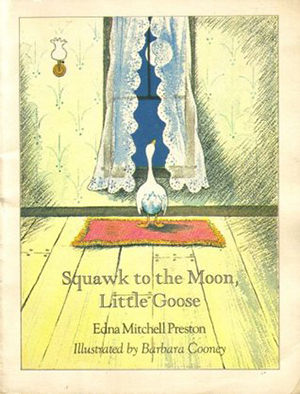 You may be thinking, “What is a children’s book doing in University Affairs?” I am confident that this is the perfect place and space for it. Squawk to the Moon Little Goose was the first book in my childhood that inspired me to read and dream. It is the tale of a little goose who night after night watches the moon with great admiration. This goose is truly a creative thinker and believes that the pond has swallowed the moon. Although it is only a reflection on this waters’ surface; it becomes the springboard for the adventures of this little goose. This little feathered being is determined to save the moon and as a four-year-old kid I thought, “This is the coolest bird I have ever known!”
You may be thinking, “What is a children’s book doing in University Affairs?” I am confident that this is the perfect place and space for it. Squawk to the Moon Little Goose was the first book in my childhood that inspired me to read and dream. It is the tale of a little goose who night after night watches the moon with great admiration. This goose is truly a creative thinker and believes that the pond has swallowed the moon. Although it is only a reflection on this waters’ surface; it becomes the springboard for the adventures of this little goose. This little feathered being is determined to save the moon and as a four-year-old kid I thought, “This is the coolest bird I have ever known!”
Books that spark the imagination and allow us to share in stories are what I value. I especially appreciate literature that facilitates personal and professional journeys towards action. You see, this children’s book was the first step towards my own development of seeing the world differently. I could relate to the character and from that point on I became devoted to the helping and advocating of other-than-human beings. This term refers to our first mother, the earth, and all of her children (plants, animals, seen, unseen). This book taught me that I had a very important role in this world and that my footprint really mattered. I have lived with these themes and living teachings my entire life. A couple of decades later I still think about the antics of that little goose and I continue to read material that fosters who I am and who I can be. Books do have the power to change lives. It certainly did mine.
Water: The Fate of Our Most Precious Resource, by Marq de Villiers
Jeremy Schmidt, assistant professor in the faculty of geography and environmental studies, Carleton University
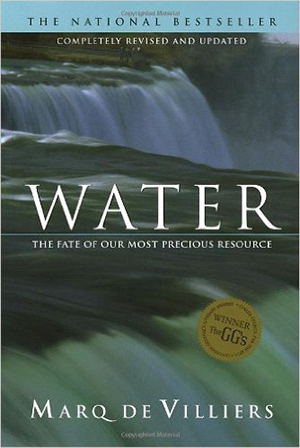 When a book changes your life, the story is often more about your life than the book. In my case, Marq de Villier’s Water: The Fate of our Most Precious Resource came at an important crossroads. I was preparing to enter graduate school at McGill and had just returned from several months in India. While there, my travelling companions and I took our own water filtration system so that we wouldn’t need to buy bottled water. We floated down the Ganges River, itself full of both symbolism and foreign substances. With these experiences fresh in my mind, I was absorbed by Water, which won a Governor General’s Award for its lucid, riveting survey of global water challenges. When I put it down, I notified my supervisor that I was changing thesis topics.
When a book changes your life, the story is often more about your life than the book. In my case, Marq de Villier’s Water: The Fate of our Most Precious Resource came at an important crossroads. I was preparing to enter graduate school at McGill and had just returned from several months in India. While there, my travelling companions and I took our own water filtration system so that we wouldn’t need to buy bottled water. We floated down the Ganges River, itself full of both symbolism and foreign substances. With these experiences fresh in my mind, I was absorbed by Water, which won a Governor General’s Award for its lucid, riveting survey of global water challenges. When I put it down, I notified my supervisor that I was changing thesis topics.
Marq de Villiers book is a careful, often devastatingly poignant account that rejects simplistic binaries of good or bad, stewardship or stalemate. It was Water’s rejection of easy answers, and of easy formulations of problems themselves, that stuck with me over time. The scale of human impacts on water is not a story only to be told en masse. The specificity of the problems, and the complex ways in which hubris and hope enfold visions of the future and the past, give Water its staying power. As I developed my own research program, Water continued to offer fresh insights regarding how to tell nuanced stories in compelling form. Years later, I sent Marq de Villiers a note of thanks that he kindly responded to. His influence will be evident when New York University Press publishes my own book, Water: Abundance, Scarcity, and Security in the Age of Humanity, this coming April.
Symbolic Interactionism: Perspective and Method, by Herbert Blumer
Scott Grills, professor of sociology, Brandon University
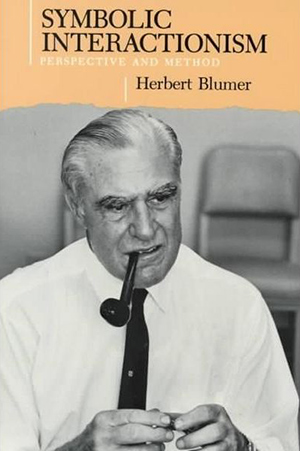 There is an important difference between a great book and a relevant one. Many personal libraries hold unread great books – positioned more as trophy than as traveling companion. But a transformative book, well, that is a rare find. The transformative ones are subjected to marginalia, tattered and reluctantly replaced. They may be gifted to another, but they are never loaned out; they are too valuable for that. In my case there is a small, green, somewhat battered hardcover that has traveled with me since my first days as a master’s student and it did something for me that no other book had done: It let me know that there was a place for me in the vast and conflictual discipline of sociology.
There is an important difference between a great book and a relevant one. Many personal libraries hold unread great books – positioned more as trophy than as traveling companion. But a transformative book, well, that is a rare find. The transformative ones are subjected to marginalia, tattered and reluctantly replaced. They may be gifted to another, but they are never loaned out; they are too valuable for that. In my case there is a small, green, somewhat battered hardcover that has traveled with me since my first days as a master’s student and it did something for me that no other book had done: It let me know that there was a place for me in the vast and conflictual discipline of sociology.
The book, Herbert Blumer’s Symbolic Interactionism: Perspective and Method, was perspective-altering. Much as the Group of Seven changed the Canadian gaze, this work ensured that it was impossible to read some of the supposedly greater books in the same way again. It is under-sourced, passionate and filled with more questions than answers. It also demands much of the reader. What assumptions do we make of the social world? What is the fundamental unit of analysis by which we engage in the analysis of social life? How is meaning acquired and modified? What is the practical importance of possessing a self? How is joint action accomplished? And, rather centrally, how do we respect the nature of the empirical world as we engage in the study of it? In this work I found an intellectual home, in that it is both a point of departure and one that I return to repeatedly. It is a corrective for much of what ails much of contemporary sociology – a disinterest in what people actually do and the absence of a commitment to understanding the human condition.
A Room of One’s Own, by Virginia Woolf
Allyson Jule, professor of education, Trinity Western University
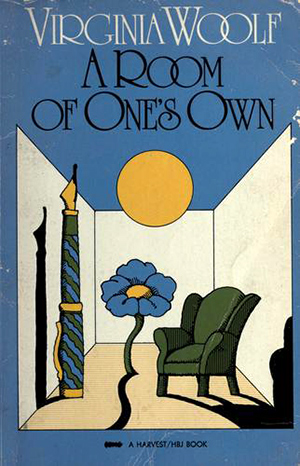 When I first read Virginia Woolf’s A Room of One’s Own as a young woman at the University of Alberta, I was startled, energized and motivated to become an educator and do my bit to create the space or the room for women to excel and, well, to change the world. And yet, for a whole host of reasons, educational opportunities still remain stubbornly gendered. If you haven’t read A Room of One’s Own, stop what you’re doing and read it. It is the thin, powerful book that grew out of a lecture Woolf was invited to give at Girton College, University of Cambridge, in 1928. In this extended essay, Woolf ponders why women writers could never have written War and Peace. Her fictional creation of Shakespeare’s sister, Judith, sets up the explanation: poverty/financial dependence on men, lack of opportunity and encouragement, limited expectations of female creativity, and a lack of private space kept women from accessing the wider creative world of men.
When I first read Virginia Woolf’s A Room of One’s Own as a young woman at the University of Alberta, I was startled, energized and motivated to become an educator and do my bit to create the space or the room for women to excel and, well, to change the world. And yet, for a whole host of reasons, educational opportunities still remain stubbornly gendered. If you haven’t read A Room of One’s Own, stop what you’re doing and read it. It is the thin, powerful book that grew out of a lecture Woolf was invited to give at Girton College, University of Cambridge, in 1928. In this extended essay, Woolf ponders why women writers could never have written War and Peace. Her fictional creation of Shakespeare’s sister, Judith, sets up the explanation: poverty/financial dependence on men, lack of opportunity and encouragement, limited expectations of female creativity, and a lack of private space kept women from accessing the wider creative world of men.
Woolf picks up where Mary Wollstonecraft left off: the latter’s short tract written in 1786, “Thoughts on the Education of Daughters,” went on to become the classic, A Vindication of the Rights of Woman in 1789. Wollstonecraft said that women cannot achieve and will never achieve the same levels of greatness as men without the same education as men. In a similar vein, Woolf exhorts young women of her generation to find some “room of one’s own,” some space in which to think and read and contemplate life – to make room in their educated lives for doing great things. Woolf’s words speak to us with a force that reaches beyond her own era, and A Room of One’s Own is a vivid call to action in the present tense.
Happiness: A Philosopher’s Guide, by Frederic Lenoir
Vivian Lewis, University librarian at McMaster University
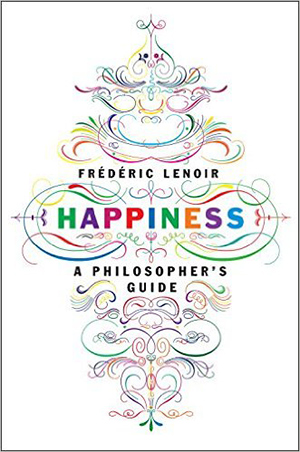 Some months ago, I picked up a small book by Frederic Lenoir titled Happiness: A Philosopher’s Guide. The title fooled me, suggesting it might have been some kind of self-help treatise, and I almost put the book aside. But just a few pages in, I was compelled by the French philosopher’s brief but well-framed analysis of 2,000 years of discourse on life’s most fundamental questions: What is happiness? And how can one become happier?
Some months ago, I picked up a small book by Frederic Lenoir titled Happiness: A Philosopher’s Guide. The title fooled me, suggesting it might have been some kind of self-help treatise, and I almost put the book aside. But just a few pages in, I was compelled by the French philosopher’s brief but well-framed analysis of 2,000 years of discourse on life’s most fundamental questions: What is happiness? And how can one become happier?
Admittedly, happiness is a tough subject to tackle in this era, when our minds and our screens are fixed on global terrorism, climate change and heart-wrenching social injustices. Perhaps for this reason I was even more captivated by the author’s reminder that civilization’s greatest philosophers (Aristotle, Epicurus and even the grim Schopenhauer) devoted much of their life’s work to the study of happiness as the ultimate universal good. In sharp contrast, modern academics shy away from happiness as a topic for serious research and seem more drawn by the compelling “aesthetics of the tragic.”
Do not expect any simplified 12-step solution to the human condition. Lenoir’s thin volume presents a strangely persuasive mix of philosophy and religion, along with a light smattering of scientific research. He presents the work of the great thinkers, but makes no attempt to prescribe a specific course of action. That said, I was struck by the author’s clear assertion that we bear some significant responsibility for our own happiness. Happiness is both a matter of fate as well a set of deliberate decisions or choices. Life deals us a set of cards, and our allotment of happiness is largely dependent on how we choose to respond to them.
I was particularly intrigued by his statement that some individuals do not actually desire happiness – or at least not as a steady diet. Some of us are simply afraid to aspire to happiness out of fear of failure. Others simply enjoy the drama associated with periodic bouts of angst. The characters he describes are not relegated to reality television. They are people we encounter everyday – the individuals who seem to anticipate disappointment when happier interpretations seem well within their grasps.
Did Lenoir’s book make me happier? Not really – but a careful read forced me to reflect on my own journey in a more disciplined way.
Steps to an Ecology of Mind, by Gregory Bateson
Chiara Piazzesi, professor of sociology, Université du Québec à Montréal
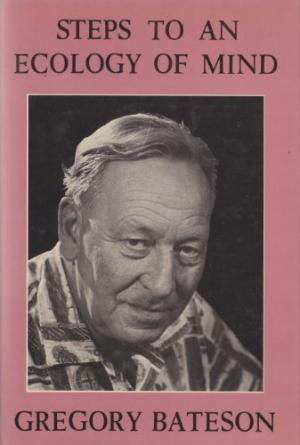 Imagine that you have always seen the world in two dimensions, and one day someone gives you 3D glasses. You have thought in terms of individuals, when you should have been thinking in terms of relationships. You have envisioned communication as a flow of messages, and you are told that it is a living phenomenon. You have thought of your habits as both endearing and irritating tendencies, and someone explains that they are complex learnings, critical for survival and mental health – and so forth.
Imagine that you have always seen the world in two dimensions, and one day someone gives you 3D glasses. You have thought in terms of individuals, when you should have been thinking in terms of relationships. You have envisioned communication as a flow of messages, and you are told that it is a living phenomenon. You have thought of your habits as both endearing and irritating tendencies, and someone explains that they are complex learnings, critical for survival and mental health – and so forth.
For me, Gregory Bateson’s Steps to an Ecology of Mind (1972) is about reshaping our way of thinking and moving from a decidedly naive worldview to a slightly more conscious and reflective world. Known primarily for founding the Palo Alto school of psychology and initiating the anti-psychiatry movement, Bateson was a polymath devoted to bridging the social and behavioural sciences. A biologist, anthropologist, psychologist, philosopher, sociologist, and cybernetics and systems theory thinker, he left us a complex conceptual legacy in the form of a most elegant style of thought. His work spanned diverse subjects, but this style is the unifying thread and the source of transformative learning for his readers.

Very interesting — I noted down a couple of titles that I’d like to follow up on. Maybe “The Book that Changed My Life” could become a recurring feature in University Affairs.